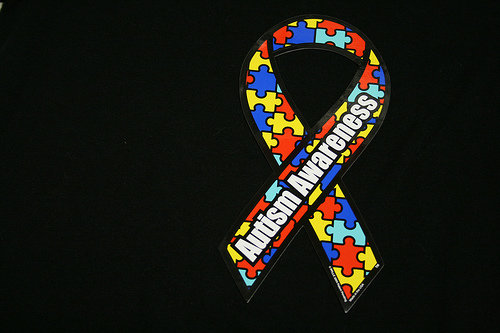Book Review: Born For Love

Born for Love: WhyEmpathy is Essential and Endangered
By Maia Szalavitz and Bruce Perry, M.D., Ph.D.
Born for Love would make a great Mother’s Day gift. When it comes to the biopsychosocial roots of empathy, moms play a starring role.
Co-written by a science journalist and a child psychiatrist, the book argues that the human brain is hardwired for empathy. We’re built to connect to others, but we’re not born that way. Our amazing ability to sync our minds with others takes years of practice. It all starts with an loving and attentive mother. (A dad, a grandmother, or an adoptive parent can also fill this role. What matters is the sustained, intensive interaction.)
Szalavitz and Perry describe the neurological and hormonal mechanisms that regulate interactions between an attentive mother and her baby. When a baby sees its mother’s smile mirror neurons in its brain weakly activate the same muscles in the baby’s own face. From the beginning, learning to recognize an emotion in another person involves feeling some of that emotion yourself. We don’t just infer that smiles indicate happiness because we notice a correlation between good fortune and grins. We understand smiles through our urge to smile back.
Empathy is at root of knowledge of other minds. Those who are unable to see the world from the perspective of another person are cognitively crippled. One of the hallmarks of autism is difficulty reading other people. If you can’t figure out what someone else is thinking or feeling, it’s hard to predict what they’re going to do next, or plan your next move. [Update: The authors explicitly reject the “refrigerator mother” theory of autism. They believe that autism is a heritable brain condition that makes day-to-day stimulation overwhelmingly intense and anxiety-provoking. As a result, it’s harder for autistic children to zero in on social cues and language during critical developmental windows. Also, while I’m clarifying, I should note that the authors aren’t advocating attachment parenting or any special nurturing program. They’re talking about ordinary parent-child affection.]
The authors present evidence that sociopaths are constitutionally incapable of taking pleasure in human interactions. They can get inside other people’s heads, but they are unable to care about anyone else’s feelings. As a result, they are effective and ruthless manipulators.
Humans are social animals, but our capacity to take pleasure in the company of others is learned. An infant and a loving caregiver establish a positive feedback loop in which each takes pleasure in the other’s well-being. The mother is happy when she relieves the baby’s distress. The baby picks up on the mother’s happiness. Infants learn to associate their caregiver’s pleasure with their own satisfaction of being cared for. The pleasure of being fed morphs into the pleasure of being with the person doing the feeding. Infants learn to bask in the warm fuzzy glow of oxytocin, a hormone that facilitates trust and attachment. Gradually, they learn to take pleasure and reassurance from other people in general.
This theory is bolstered by numerous studies of children who were deprived of one-on-one nurturing in infancy. Salavitz and Perry discuss the case of a girl who was raised in an orphanage where her physical needs were met, but she didn’t get the one-on-one nurturing that a parent would provide. Long after she was adopted by an American family, she finds herself unable to form strong attachments to other people. She is acutely sensitive to stress and prone to dissociating to cope with her feelings. Like many children raised in orphanages, her ability to form attachments and regulate her own anxiety permanently impaired.
If baby mammals aren’t cuddled, they literally won’t grow–humans included. In rat families, pups need continual licking by the mother. The runts of the litter are the ones that literally don’t get enough attention to grow. Studies have shown that the amount of grooming that a pup receives influences how its nervous system will later react to stress.
In rats, parenting has a measurable effect on the expression of certain genes. It’s as if the rat nervous system is designed fine-tune itself to the kind of world that each pup is born into. Stressed mothers are less affectionate towards their pups. A stressed and distracted mother is a sign of a tough life ahead.
In a dangerous world, a hair-trigger fight or flight response is an asset. Whereas, under conditions of stability and abundance, a more relaxed temperament is more advantageous. High levels of anxiety impair higher brain functions, like learning and memory. Female rats raised by neglectful mothers are less affectionate to their own offspring, this effect seems to be mediated by reduced levels of oxytocin. Rats that didn’t bond with their own mothers seem to have less capacity to take pleasure in nurturing their own offspring.
The authors argue that neglected human children raised by stressed and inattentive parents can suffer the similar lifelong epigenetic consequences. Childhood stress predisposes people to obesity, diabetes, heart disease, and other chronic conditions–even after controlling for other factors.
Vicious and virtuous cycles are a major theme in the book. At every level, from the hormonal to the sociological, trust and empathy beget more trust and empathy. Unfortunately, the opposite is also true. Neglect, stress, and isolation perpetuate themselves too. The book closes with some reflections on how economic and social inequality can undermine empathy.
Born for Love is an accessible and important work of popular science. The roots of empathy are of interest to policy makers and scientists alike.
[Photo credit: flickr user TravelSeminar, licensed under Creative Commons.]





